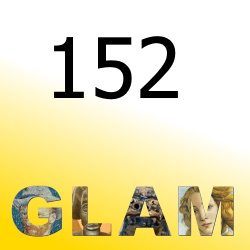Open Culture Data: the opening of GLAM data from scratch
Abstract
Open Culture Data started as a grassroot movement at the end of 2011, with the aim to open up data in the cultural sector and stimulate (creative) re-use. In this context, we organised a hackathon, which resulted in the creation of 13 Open Culture Data apps. After this successful first half year, a solid network of cultural heritage professionals, copyright and open data experts and developers was formed. In April 2012, an Open Culture Data masterclass started in which 17 institutions got practical, technical and legal advice on how to open data for re-use. Furthermore, we organised an app competition and three hackathons, in which developers were stimulated to re-use Open Cultural Datasets in new and innovative ways. These activities resulted in 27 more apps and 34 open datasets. In this paper we share lessons-learned that will inform heritage institutions with real-life quantitative and qualitative experiences, best practices and guidelines from their peers for opening up data and the ways in which this data is reused. Since the open culture data field is still relatively young, this is highly relevant information needed to stimulate others to join the open data movement. To this end, we are already taking steps to cross the borders and let Europe know about the initiative, on both a practical and a policy level.References
Commons:Licensing. W: Wikimedia Commons [on-line]. Published January 14, 2013 [dostęp 21.01.2013]. Dostępny w: http://goo.gl/9ThRwe.
DUVEBORG, M., BOLIN, J. Europeana’s huge cultural dataset opens for re-use. W: Europeana Professional [on-line]. 12.09.2012 [dostęp 24.01.2013]. Dostępny w: http://goo.gl/KDfklz.
EDSON, M. Museums and the Commons: Helping makers get stuff done. W: Slideshare [on-line]. 16.12.2010 [dostęp 24.01.2013]. Dostępny w: http://goo.gl/tkABXt.
FINNIS, J., CHAN, S., CLEMENTS, R. How to Evaluate Online Success? A New Piece of Action Research. W: Museums and the Web 2011 [on-line]. Published March 31, 2011 [dostęp 23.09.2012]. Dostępny w: http://goo.gl/Xj4e1t.
GROB, B. i in. Why Reinvent The Wheel Over And Over Again? How an Offline Platform Stimulates Online Innovation. W: Museums and the Web 2011 [on-line]. Published 31.03. 2011 [dostęp 24.01.2013]. Dostępny w: http://goo.gl/VoBdtc.
HUGENHOLTZ, P.B. Abuse of database right. Sole-source information banks under the EU Database Directive. W: LÉVÊQUE, F., SHELANSKI, H. (red.). Antitrust, Patents and Copyright: EU and US Perspectives. Cheltenham: Edward Elgar Publishing, 2005, s. 203–219. [Referat dostępny również w formacie PDF — przyp. red.]: HUGENHOLTZ, P.B. Abuse of database right: Sole-source information banks under the EU Database Directive. W: IVIR Institute for Information Law : publications [on-line], [dostęp 20.01.2013]. Dostępny w: http://www.ivir.nl/publications/hugenholtz/abuseofdatabaseright.pdf.
KROES, N. Foreword: Culture and Open Data: How Can Museums Get the Best from their Digital Assets? Uncommon Culture: From Closed Doors to Open Gates [on-line]. 2011, vol. 2, no. 3/4 [dostęp 10.12.2012]. Dostępny w: http://goo.gl/PsTai7.
LAKHANI, K.R., PANETTA, J.A. The Principles of Distributed Innovation [on-line], [dostęp. 01.10.2014]. Dostępny w: http://www.mitpressjournals.org/doi/pdf/10.1162/itgg.2007.2.3.97.
NIGGEMANN, E., DECKER, J. de, LÉVY, M. The New Renaissance. Reflection group on bringing Europeʼs cultural heritage online [on-line]. Luxembourg: Publications Office of the European Union, 2011 [dostęp 10.12.2012]. Dostępny w: http://www.eurosfaire.prd.fr/7pc/doc/1302102400_kk7911109enc_002.pdf.
PEKEL, J. OpenGLAM workshop at the OKFestival. W: OpenGLAM [on-line]. September 27, 2012 [dostęp 28.02.2013]. Dostępny w: http://goo.gl/sfJJPs.
Public Sector Information — Raw Data for New Services and Products. W: Internet Archive [on-line]. December 2012 [dostęp 17.02.2013]. Dostępny w: http://goo.gl/CLels5.
Query of the Europeana API on the rights status of all records in the Europeana database. W: Europeana API Service [on-line], [31.01.2013]. Dostępny w: http://pro.europeana.eu/api.
VERWAYEN H., ARNOLDUS, M., KAUFMAN P.B. The problem of the yellow Milkmaid: a business model perspective on open metadata. W: Europeana Whitepaper [on-line]. 2011, no. 2 [dostęp 10.12.2012]. Dostępny w: http://pro.europeana.eu/documents/858566/2cbf1f78-e036-4088-af25-94684ff90dc5.
WAIBEL, G., ERWAY, R. Think global, act local–library, archive and museum collaboration. Museum Management and Curatorship 2009, no. 24(4), s. 1–14.
ZEINSTRA, M., TIMMERMANS, N. Auteursrecht en Open Data in de Culturele Sector. W: Open Cultuur Data [on-line]. Amsterdam: Creative Commons Nederland. Consulted, 2012 [dostęp 10.12.2012]. Dostępny w: http://www.opencultuurdata.nl/wp-content/uploads/2012/07/Auteursrecht-en-Open-Data-in-de-Culturele-Sector.pdf.
ZEINSTRA, M., TIMMERMANS, N. Creative Commons-licenties en methoden voor het openstellen van culturele data. W: Open Cultuur Data [on-line]. Amsterdam: Creative Commons Nederland, 2012 [dostęp 10.12.2012]. Dostępny w: http://www.opencultuurdata.nl/wp-content/uploads/2012/07/Creative-Commons-licenties-en-methoden-voor-het-openstellen-van-culturele-data.pdf.
ZEINSTRA, M., TIMMERMANS, N. Open data: delen, verbinden, verrijken. W: Open Cultuur Data [on-line]. Amsterdam: Creative Commons Nederland, 2012 [dostęp 10.12.2012]. Dostępny w. http://www.opencultuurdata.nl/wp-content/uploads/2012/07/Open-Data-Delen-Verbinden-en-Verrijken.pdf.

